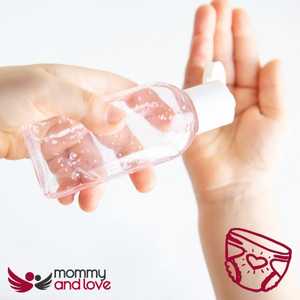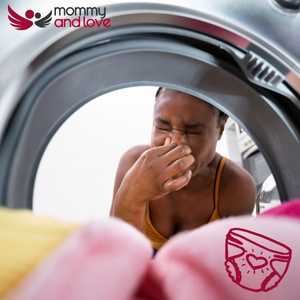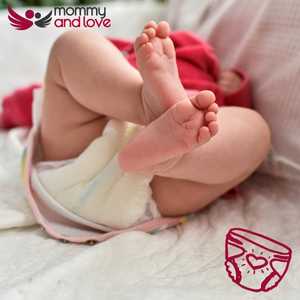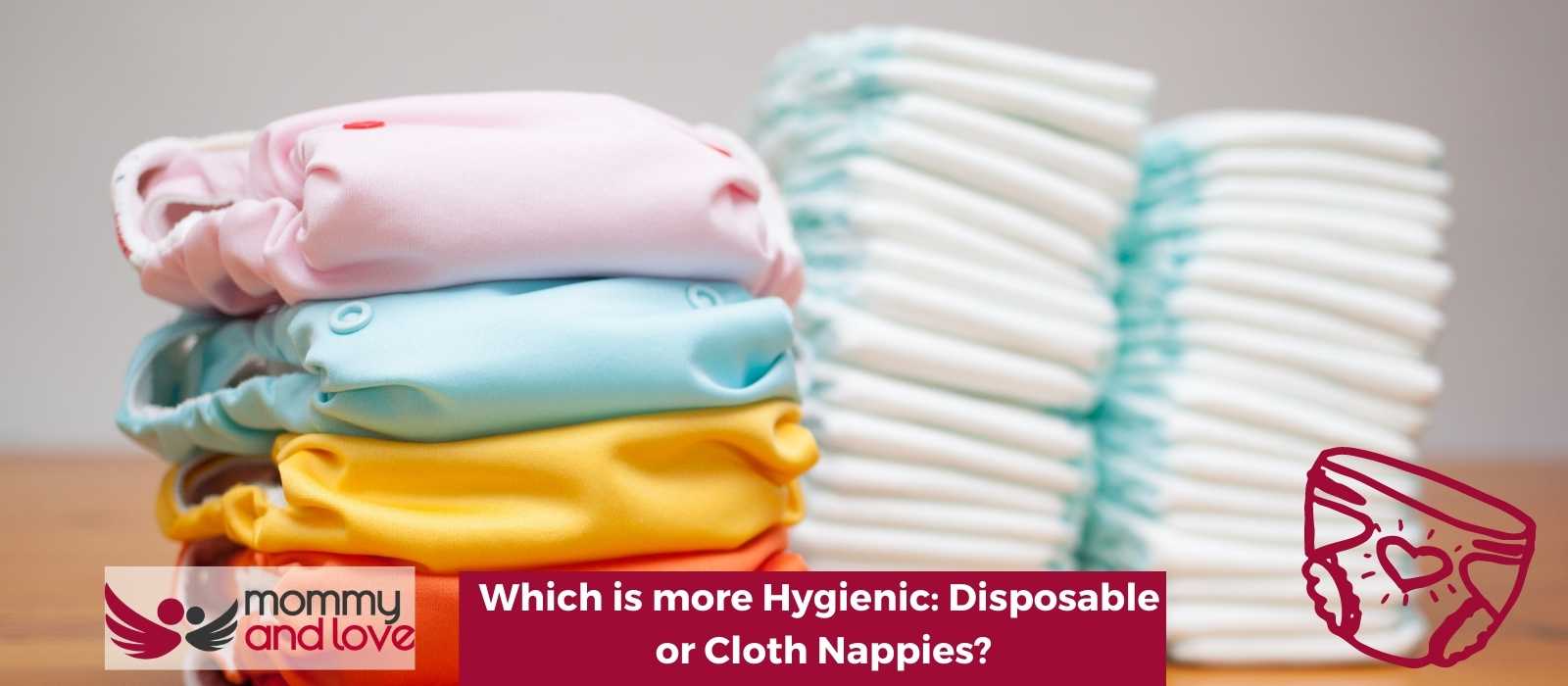Are cloth nappies hygienic?
YES! Despite what you might hear, cloth nappies are hygienic and actually are more hygienic than disposable nappies. The debate between cloth and disposable nappies is one that has been going on for years. Cloth nappies are considered to be more environmentally friendly, but many people argue that they’re not as hygienic, however, this is simply untrue.
Your baby’s nappies will be clean and sanitary if you use washing detergent (forget ideas about using soap nuts or eco eggs) and follow our washing guidelines for cleaning nappies.
Are cloth nappies sanitary?
The NHS advises that nappies should be washed at 60 degrees to ensure they are sanitised. However, you don’t need to have them sanitised at every wash. I did a 60 degree wash every 2 weeks and the rest of the time washed at 40 degrees. Technically a 3-minute wash at 72 degrees will fully sanitise any nappies.
Do I need to use sanitiser on reusable nappies?

NO! For general day to day washing you do not need to sanitise your nappies. If your child is suffering from infection then you should use a sanitiser (or after vaccinations).
Sometimes your nappies might need a deep clean (if grubby, if an infection or if you have purchased second-hand nappies we advise this).
Sanitisers can be great for killing bacteria and germs, but they come with a couple of downsides:
- They will eventually destroy many of the nappy fabrics so use them only when needed.
- They are expensive if used on every wash
- Nappies need to be clean, but don’t always need to be sterilised.
Deep Cleaning Nappies
A deep clean is a great way of removing dirt and organic matter from nappies. This is a different method to stripping nappies. You do not need to deep clean waterproof covers, just sanitise these. Always do a deep clean before you sanitise your nappies. This should only be done as a last resort and should not need to be done if you follow our guide to cleaning nappies.
When doing a deep clean you always need to use a biological powder, our guide to bio vs non-bio explains why.
How to Deep Clean Nappies
- Fill your bowl with very hot water.
- Add your biological washing powder to the hot water ensuring it is dissolved.
- Add the nappies and leave to soak for four hours.
- Drain then put in the washing machine on a rinse cycle.
- Wash on a long hot cycle with NO washing powder.
- Rewash with a sanitising agent which will kill any lingering bacteria.
What to do if nappies smell of ammonia

If your nappies smell of ammonia after washing then you need to do a strip wash first. If this does not work then try a deep clean wash and sanitise your nappies.
Reuseable nappy odour is usually the result of detergent-clogged fibres in the fabric. This indicates that your wash routine is not sufficiently cleaning the nappies.
This can also be caused by the buildup of urine or ammonia crystals within your fabric, which would require a deep clean to remove thoroughly.
Washing nappies is simple if you follow a few easy steps. Don’t use fabric softener, don’t overload your washing machine and wash nappies with biological detergent.
Try and air your nappies on the washing line often. Most nappies will benefit from some fresh air or even keep them spaced out on a clothes horse.
If your child has nappy rash
Read our full guide to nappy rash in children here but to summarise rash can come from disposable and reusable nappies. Change any dirty nappies very quickly and do a thorough clean. Changing a baby’s nappy regularly is key to getting on top of a nappy rash.
If reusable diapers caused the nappy rash, then they would have disappeared over the last 40 years as the majority of the nation has used disposable nappies. It is prolonged contact with dirt which causes rash so always keep the nappy area clean and change your cloth nappy often.
Modern cloth nappies use stay-dry fabrics that keep a baby’s bum nice and dry and wick moisture away from the baby’s skin. If your child has a severe rash consider using something like a silk liner which will help. If your child has sensitive skin it’s best to keep them away from the harsh chemicals contained within a disposable nappy.
Are disposables nappies hygienic

You put your dirty disposable diapers into your household waste. Think about that, human faeces is sitting in your kitchen bin for a few days, is this hygienic?
Ok so you might use a special nappy bucket to store your nappies and wrap them in even more plastic, but the poo is still sitting there festering away.
With real nappies, unlike disposables, you flush the poo down the toilet and it is dealt with as it should be, in the sewerage system. Think about putting your poo inside a plastic bag and putting it in the bin. Now, tell me what you think is more hygienic?
Is underwear hygienic?
One final thought? Do you wear disposable paper pants because they are more hygienic?
The disposable nappies vs reusable nappies hygienic debate
So overall, disposable nappies and reusable nappies both have good points and bad points. Reusable nappies save you money, are better for the baby and the environment and are hygienic. With disposable nappies, if you think of how many nappies are sitting in your household bins festering away, they are not more hygienic.
- Is it sanitary to dispose of thousands of disposable diapers in a landfill, where they pollute the soil and groundwater for 500 years?
- Are the materials they’re composed of sanitary? or safe?
- Do you believe that poop and pee are separated in a disposable diaper? Does it disappear?
- Do you throw your newborn’s clothes away if they get poop all over them?
Take Away
Reusable nappies come in funky designs and most parents find that using a reusable nappy on their baby makes sense all things considered. You can wash with baby clothes, keep them stored in a wet bag until ready to use they will save money and are the hygienic alternative to disposables.
The decision on whether to use disposable or cloth diapers is a personal one. There are many factors that go into this decision, including your budget, environmental considerations and the type of baby you have (for example if they suffer from nappy rash). In general, it’s been found that reusable diapers are just as hygienic if not more so than disposables.

This article was written by: Gian MIller – Full-Time Writer, Baby Whisperer & Dad of 3.
Gian spends a lot of his time writing. A self-proclaimed baby whisperer, Gian has been through it all with his own children and is passionate about sharing his hard-won wisdom with other parents. When he’s not writing or changing diapers, you can find him playing the guitar or watching baseball (or preferably both at the same time).




